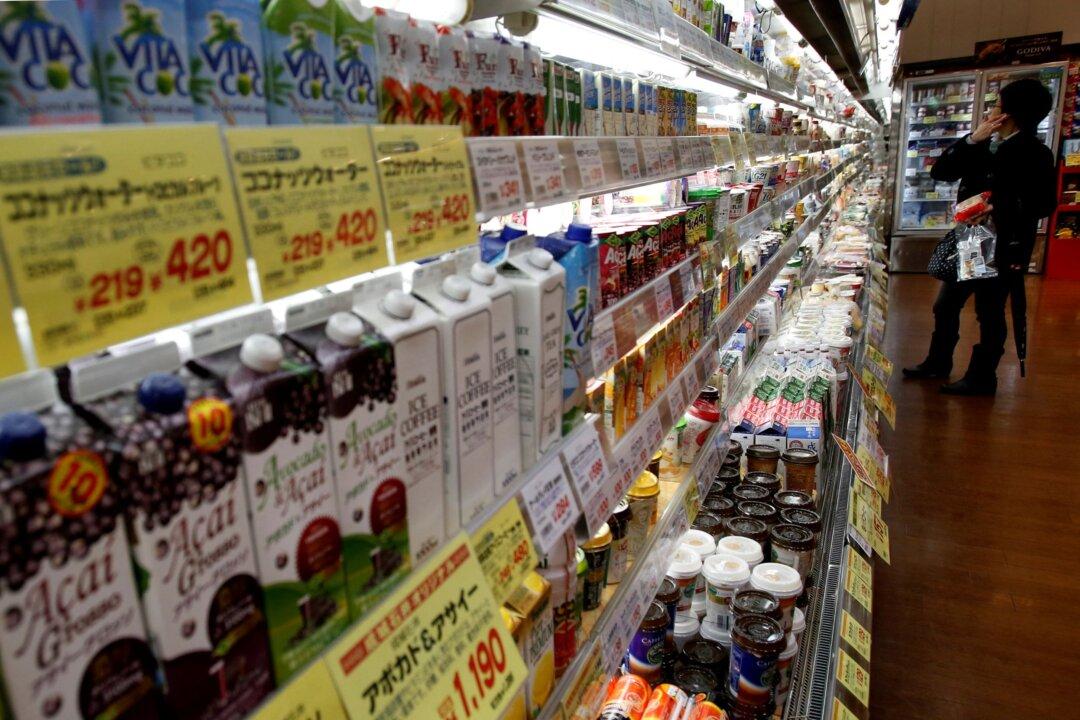TOKYO—Japan’s core consumer prices rose for a fifth straight month in January but at a slower pace than in the previous month, boosting the likelihood the country’s central bank will lag behind other economies in raising interest rates.
Consumer inflation is expected to pick up in the coming months due to surging energy prices, while last year’s mobile phone fee cuts are also set to fall out of calculations and will no longer be a drag on prices.





